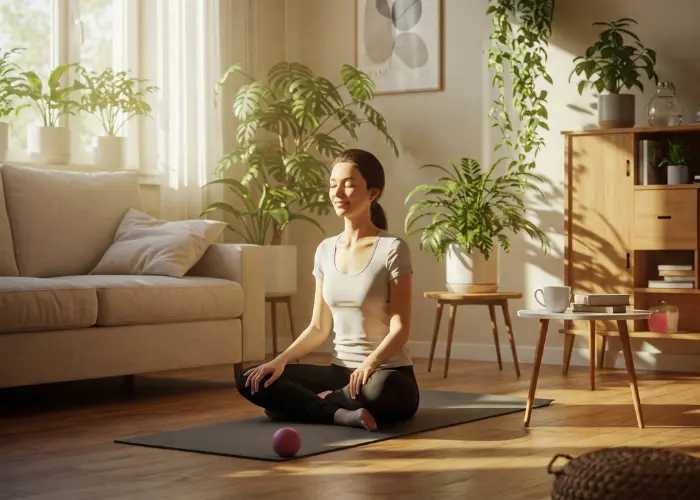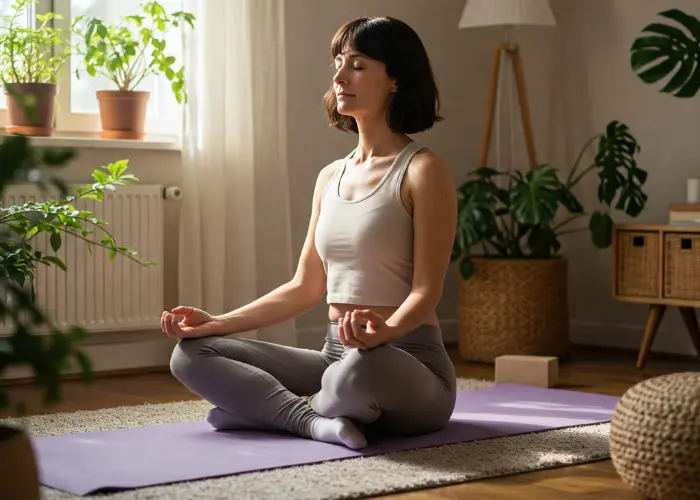Discover 5 simple daily habits that naturally reduce stress and anxiety. Support your mental well-being with easy lifestyle changes.
Life can feel overwhelming, especially when the demands of work, family, and daily responsibilities pile up. If you often find yourself feeling anxious or mentally drained, you’re not alone—and you don’t need a complete lifestyle overhaul to feel better. By building a few mindful practices into your routine, you can bring more calm, clarity, and balance to your day.
Here are five simple but powerful daily habits that help reduce stress and anxiety naturally, supporting your overall mental well-being.
1. Start Your Morning With Mindful Breathing
A few minutes of mindful breathing in the morning can set a peaceful tone for your entire day. It’s a natural anxiety remedy that signals your body to relax, lowers cortisol levels, and improves focus.
Try this:
Sit quietly for 3–5 minutes after waking. Inhale slowly for 4 counts, hold for 4, exhale for 4, and pause again for 4. Repeat this “box breathing” pattern for a few rounds.
Why it works:
According to the National Institutes of Health (NIH), mindful breathing helps regulate the nervous system and reduces the symptoms of anxiety.
2. Take Movement Breaks Throughout the Day
You don’t need a full workout to feel the benefits of physical activity. Short movement breaks—like stretching, walking, or dancing—can boost endorphins and lower stress hormones.
Aim for:
5 to 10 minutes of light activity every hour or so, especially if you sit at a desk most of the day.
Quick tip:
Try a 10-minute walk after lunch. Not only does it support digestion, but it’s also a proven stress-buster.
3. Nourish Your Body With Whole Foods
Your mood is closely linked to what you eat. Processed foods and too much sugar can spike anxiety, while whole foods rich in vitamins, fiber, and healthy fats can support a calmer mind.
Focus on:
- Leafy greens (magnesium-rich)
- Berries (high in antioxidants)
- Fatty fish or flaxseed (omega-3s)
- Fermented foods (gut health = mental health!)
4. Limit Digital Overload
Constant notifications and endless scrolling contribute to mental fatigue and stress. Set clear boundaries with your devices to protect your peace of mind.
Try this habit:
Designate “screen-free” times—like during meals or the first and last hour of your day. Silence unnecessary notifications, and consider using grayscale mode to reduce screen stimulation.
Bonus: Disconnecting regularly can improve your sleep, too!
5. End Your Day With Gratitude
Gratitude isn’t just a feel-good concept—it’s a powerful tool to reduce anxiety and boost mental resilience. A nightly gratitude practice shifts your focus away from worries and toward what’s going right.
How to start:
Write down three things you’re thankful for before bed. Keep it simple: a warm cup of tea, a kind message, or a beautiful sunset all count.
Science says:
Studies show that gratitude can significantly reduce symptoms of anxiety and even improve sleep quality [NIH].
Final Thoughts
You don’t need a complete lifestyle overhaul to feel better. By adding small, consistent habits like mindful breathing, short walks, whole-food meals, and screen-free time, you’ll begin to feel calmer and more in control. Stress is part of life—but how you manage it makes all the difference.
Start with one or two habits today, and notice how your mind and body respond.
💬 What helps you manage stress naturally?
We’d love to hear from you—drop a comment below, share this with a friend.



